Things you only buy once in your life
Bye Bye Single-Use Plastic
Reducing single-use plastic is a topic that is very close to my heart, and I am so happy to see that politicians in Europe slowly become aware of the problem. I have been obsessed about recycling my trash since (kind of) forever. I could never bear to throw recyclable material into the trash bin because it felt like throwing away perfectly usable stuff. I thought I was doing the best I could, but then I spent two weeks at my friend's house in the States, and he had actually banned plastic from his life altogether! And that's when I thought: He is so right! It's not about recycling! But it's about not even using or needing plastic to begin with! And I thought, if he can do it, then I can do it too!
At home, I started researching alternatives for single-use plastic items, and where you could buy them. It took me two weeks! That's the perk of being a freelancer. I was also trying to understand how the plastic industry works, how recycling works etc. And to be honest, I still don't know if I can see through it all. The whole industry isn't very transparent, and that might be one of the biggest problems. Because of this lack of transparency, there are many misconceptions about plastic and recycling.
But in the end, I came up with a list of daily items that can easily be swapped out for something more sustainable.
Reduce, reuse, recycle
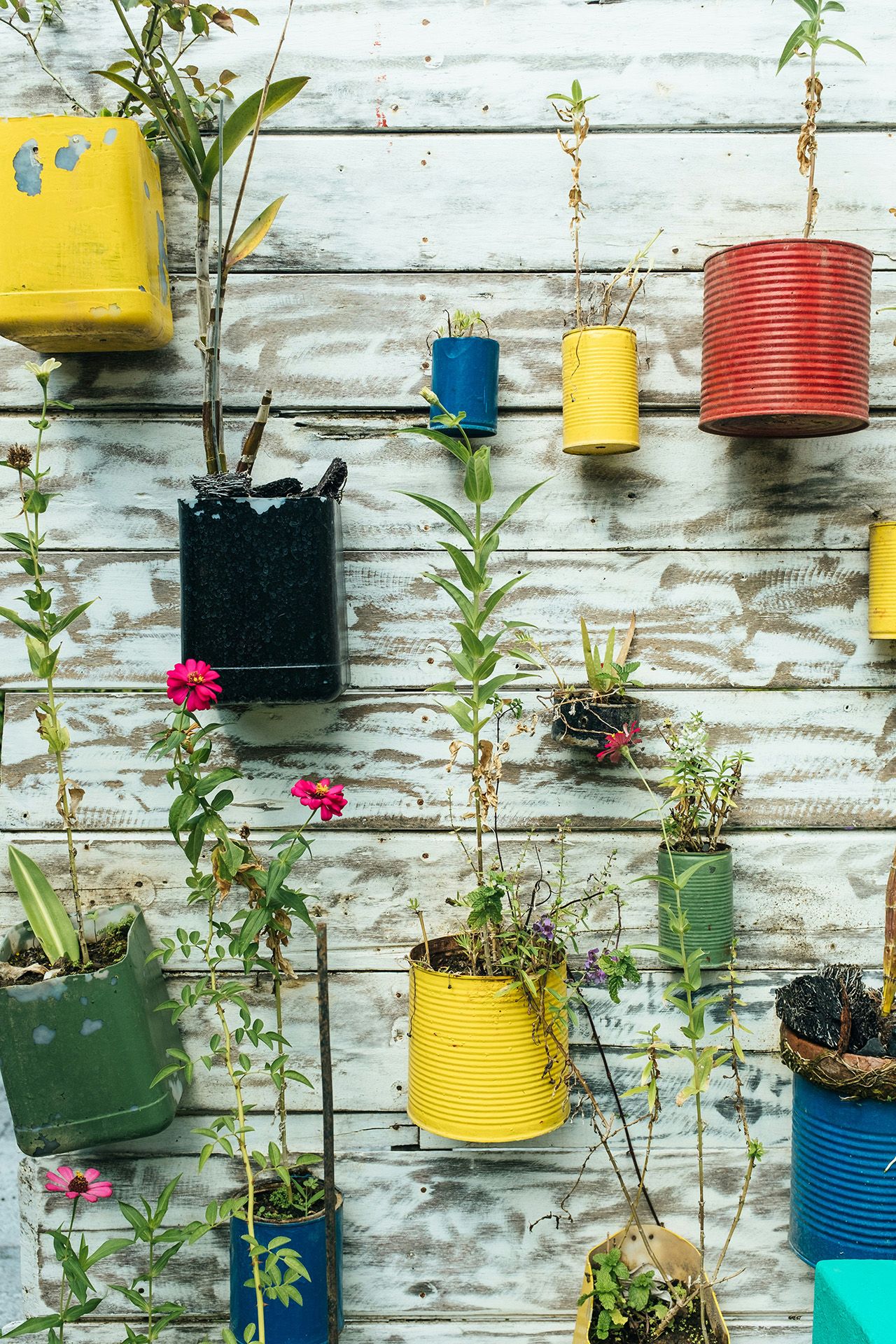
Basically, you can say that recycled plastic can never become plastic of the same quality again. Plastic is almost always a mixture of different sorts of plastic, which cannot be separated during recycling. Therefore, recycled plastic is most of the times impure and becomes less valuable over time. This is called down-cycling. The plastic that contains food today cannot be used for food packaging tomorrow but it will become a garden chair, for example, in any case, something of lesser value in plastic terms. And, not to forget, producing new plastic is cheaper than recycling plastic, so the economic adavantage of recycling is pretty non-existent.
Recycling would allow for less new oil to be used in plastic production. But it would not cut down our need for plastic, and therefore it would not solve the problem of plastic ending up in nature and the oceans. Paper, glass, and metal though can be fully recycled into equally valuable materials. They have a circular life and are therefore more sustainable choices.
But no matter what the material is we are using, the ground rule for a more sustainable use of resources should be that recycling is only the last step.
The idea should be to reduce, reuse, recycle. This counts for all our material belongings.
1. R E D U C E:
Less is always the best option. If we use less plastic, we need to produce less, recycle less, and fish less plastic trash out of the ocean. Ditch the idea that recycling is a good deed! It's not. It should be the last option.
2. R E U S E:
Repurpose everything you can. Try to think creatively and reuse what you've got. Buy things that are reusable.
3. R E C Y C L E:
If nothing else works...recycle.
I cut down my waste production five years ago. The main change is that I make conscious choices now - every day and every single time I buy something. I am by no means perfect. For example, I cannot find milk or cheese in my neighborhood that is not packaged in plastic or tetra pack. I like to occasionally eat fancy hummus, which means plastic, and sometimes I just don't have my schedule and fridge under control and I need to get food quickly - which after 7pm means again: plastic. It makes me feel guilty. But I think what counts is to try our best, and most of all, to make our own choices instead of following a given path that has not been rethought since the emergence of the convenience-lifestyle in the '50s, and that has been hammered into our brains by multinationals in order to sell us their products.
Making conscious choices makes the difference and cuts down plastic waste drastically.
Someone - I forgot who - said: "Every time you spend money, you vote."
Every time you spend money, you vote!
Shopping
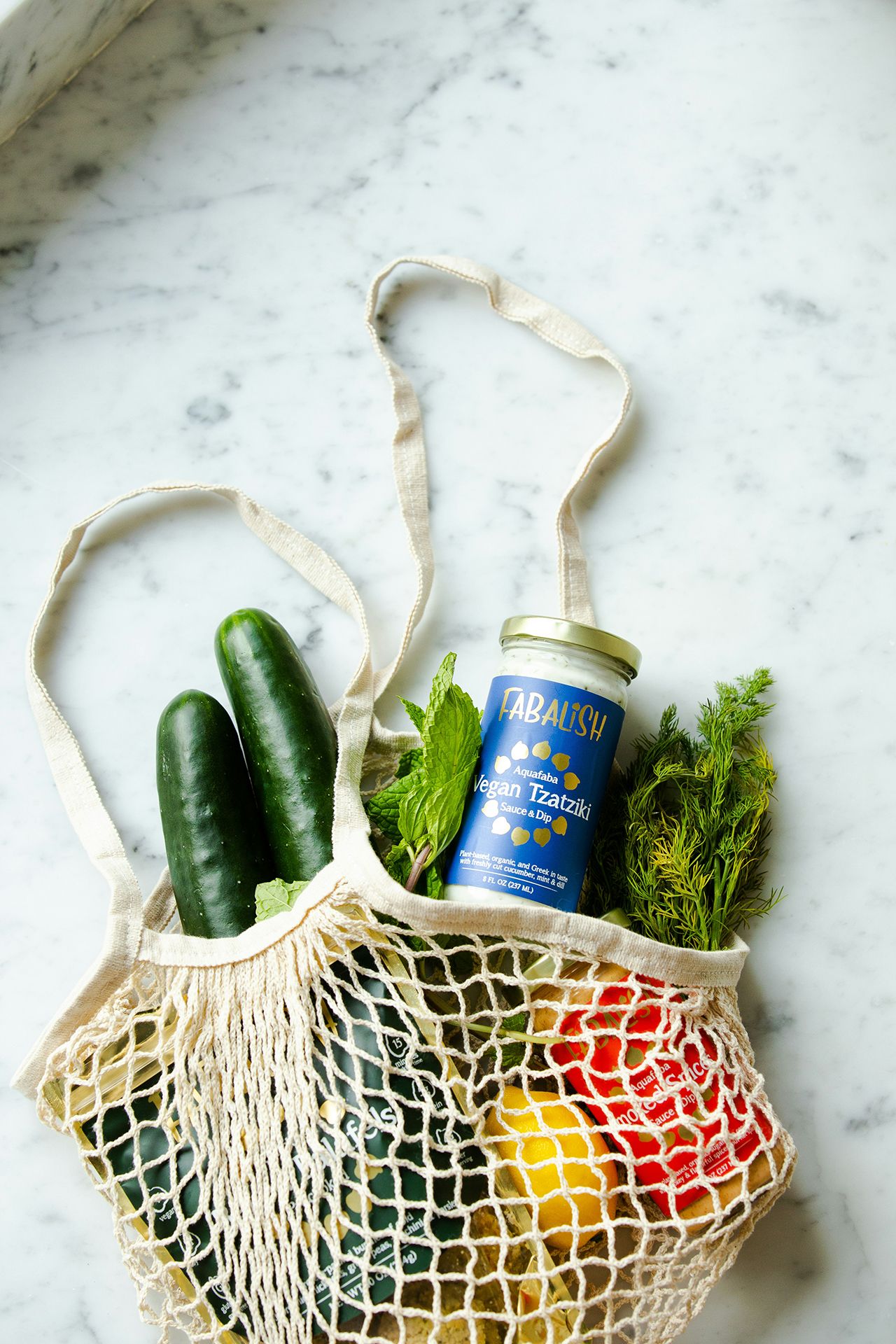
- shopping bags:
I try to never ever use a single-use plastic bag again. If I know that I buy something (groceries, clothes, or anything else), I take a tote bag or a big shopper with me. I keep them in my backpack or my car or wherever suits me best. Or I just try to simply carry the stuff I bought. Most of the time that's pretty much possible. (Also, some people accumulate 100 reusable shopping bags in their life. That is not the point either. If bought in excessive amounts, they might be more harmful than their single-use cousins.)
I take cotton bags to the grocery store for vegetables, fruits, and bread. Or in the very worst case, I get a paper bag and reuse it afterward, or compost it because the compost likes brown paper. Some vegetables I don't even wrap in something. They were wrapped enough by nature and I will wash them anyway before I eat them. Sometimes I even get discounts when I bring my own bag. (Also, if you are a crafty person, you can just make your own from old fabric scraps or bed sheets.)
- bulk*:
I try to find as much as possible in bulk and I use my cotton bags to transport it. These stores are still hard to find but if we make use of the ones there are, then more and more will emerge. (Big plus: you actually become aware of the price per kilo of your food and you can buy the exact amount you need instead of the industry's standard.)
On the go
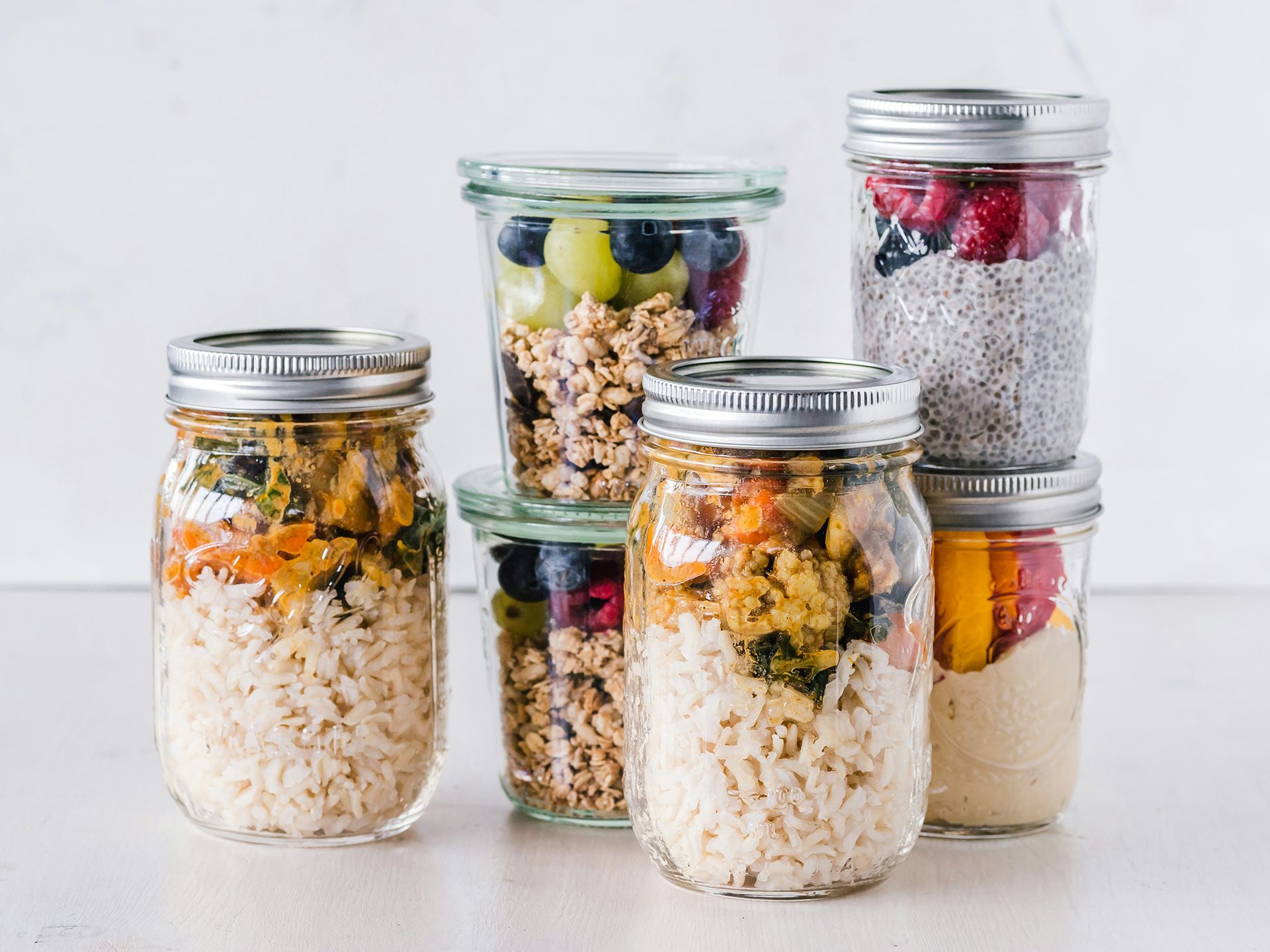
There are so many advantages to this one! It keeps my coffee or tea warm for hours (++), it doesn't spill (++), I often get a discount and it's stylish. (It's also perfect for smoothies and other beverages that are difficult to clean from a bottle.)
This is almost unnecessary to mention because they start to become standard! How awesome is that?
- food containers* / mason jars / sandwich wrappers*:
I used to wrap my food in tin foil, put them in plastic bags, and all kinds of stuff that I wouldn't need to take home afterward. But why? If I can bring it, I can also take it home! And anyway, mason jars are so hip now because you can see what you eat. (You don't need to buy mason jars! Keep the ones your groceries come with because you know that they seal well and they are 'for free'. I especially like these and the most awesome are these.)
- ice cream in a mason jar:
I don't really like ice cream cones, but I really, really like ice cream. So, when I plan to buy ice cream, I bring a mason jar and a small spoon with me. This avoids getting a disposable cup with a plastic spoon or a cone that I don't really want, which is in a way, even if I eat it, a bit of food waste. The awesome thing is that afterward you close the mason jar with its lid and you can just drop it in your bag.
Chewing gum is some kind of plastic. It's definitely fun but if you think about it, it's also kind of weird that we chew on plastic. Chicza is an old Mayan sort of chewing gum that is made out of natural ingredients and is biodegradable. It is not 100% like the gum we know but it comes pretty close. At first, it's a bit like a Moam and then it becomes real chewing gum. A minus is probably that it doesn't stay soft for as long. Now I don't know if Chizca is the answer because the rainforest might not be able to produce enough chewing gum for the entire world population. But it's definitely worth a thought and maybe some inventors will come up with a gum that we can produce with local ingredients?
There was a day when I left the train station, opened my newly bought umbrella (because I had forgotten mine), and it immediately broke in the wind. I realized that this was the fourth umbrella I had bought in two weeks and which had been broken, and it was the last time I had bought a disposable umbrella. I then bought the Senz umbrella, and it has been my umbrella for then years. It takes so long to break! (Also, when you know you paid a lot of money for your umbrella, you will value it and you will actually not forget it anywhere. Funny how that goes.)
In the kitchen
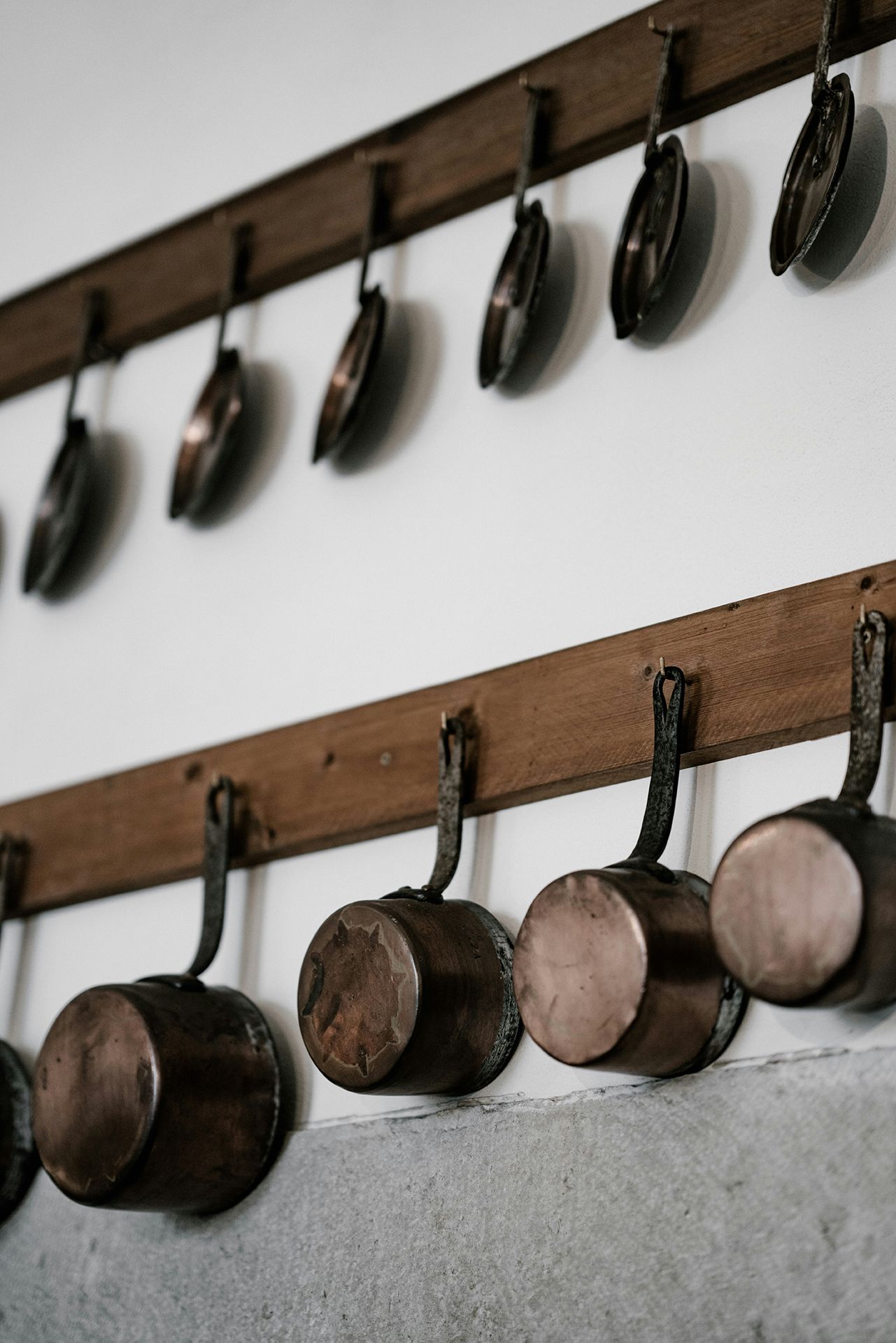
- bee's wrap / storage container with lid / foodhugger* / plate on bowl:
I also used to put cling wrap or tin foil on my bowls with food that would be stored in the fridge. Just because that's how we did it. But now I wonder: why? but seriously, why? I can put my food in a container with a lid, or if I want to leave it in the same bowl as it was, I can put a plate of the right size on the bowl to close it. If I want to have it more customized, I can use bee's wraps to close the bowl. Bee's wraps are also awesome to wrap rests of raw vegetables and cheese blocks in. Cheese will stay good for months, and young cheese will even become mature cheese. (Instead of buying bee's wraps, you can make your own with bee's wax, scraps of fabric, and old iron. It's fun.) And these little foodhuggers are perfect to keep the rest of the vegetables fresh without having to put them in cling wrap.
Why are plastic single-use freezer bags the norm if there are freezer containers and reusable silicone bags? (A plus for containers is that if they are all of the same sizes, you can stack them and use a maximum amount of space in your freezer.)
These can be put in the dishwasher and replace hundreds of parchment paper or tin foil sheets that I otherwise would use in the oven. (The parchment paper can also be cut to fit exactly every baking form in your kitchen.)
Whenever I need to buy something new, I try to buy only wooden and metal kitchenware. They last much longer, marks of use look charming on them and they can't melt away.
- dishcloth* / dish brush*:
Sponges are probably the biggest bacteria bombs there are. Instead, I usually use dishcloths and put them in the wash after one or two days. For some cleaning jobs, I also have a wooden brush. And here is one thing I haven't found a good solution for yet: I do have one regular sponge in my kitchen because I haven't found something else yet that works and doesn't ruin my kitchenware. I use it to get baked-in stains off the pots, and I have this sponge for years now. Since I don't use it to actually clean my pots and pans, but only to loosen the baked-in spots, it doesn't need to be 100% clean and I can just keep it for years.
This is another thing that I have never ever missed since I got rid of them. How did we come up with the idea that you would need to throw a towel away after one use only? And especially, after cleaning up simple food stains with it? I don't even have the fancy un-paper towel version but I just have a bunch of small towels: some for food-related cleaning and some for more hard-core house cleaning. For the very, very dirty jobs, like the outside of the car or painting jobs, I keep the towels that have definitely seen their best days, and eventually, I will throw those away
This is an even simpler matter. Why would we throw away a napkin that we used to wipe our mouth or our hands with after eating? (This is another one that can easily be made with scraps of fabric.)
I tried to make my own and it worked, but it wasn't perfect. So in the end, I went for Ecover because it's environmentally friendly soap with fewer chemicals and they sell their products in huge quantities thus less packaging. (In some places, they even have refill stations.)
One can ask, who between 12 and 85 years old needs a straw anyway? But some things are just nicer to drink with a straw. At least 10 years ago, I stopped drinking things with straws because they were made of plastic and I thought it was a ridiculous item. But now that I have a few metal straws that I will keep for life, I actually enjoy the occasional straw drink. They come with a brush, and can be put in the dishwasher.
- baking soda / vinegar / natural soap:
Most of the cleaning products we have are simply money-grabbing. Pretty much all we need is a vinegar all-purpose cleaner (which cleans just about everything), baking soda (for hardcore things like clogged drains or rust), a dishwashing soap (for dishes and windows and everything greasy), a natural soap like Dr. Bronner or Savon de Marseille (because you can even wash your vegetables with) and possibly some toilet cleaner. With these items, you can basically clean your entire house. This avoids not only chemicals but also a lot of plastic packaging and uselessly spent money.
- bin bags:
In an age where we don't know how to get rid of all the plastic bags we produce and where they end up in nature, the ocean, landfills and trash incinerators, it's totally absurd to buy unused plastic bags to put our garbage in. For a while now, a lot of people have used their plastic grocery bags as trash bags, which definitely is a big improvement. But what if we don't even have those anymore? I found out that the bags that coffee is sold in are very good trash bags because they are very watertight. Also, chips bags are very good for the same reason. Also, if you start to do more conscious choices about what you buy, you downsize your trash bin drastically. My only trash bin in the house is now the size of a small bathroom bin, and it only fills up every two weeks. So small repurposed trash bags are actually perfect.
- plates and cutlery:
Some people use plastic plates, plastic cups, and plastic cutlery when they have guests, even if they have enough dishwasher-safe versions in their cupboard. Some use paper plates. Is it because it’s less work to clean up later because you can just toss everything into the garbage bag? Or are they afraid that something will break? (Unbreakable and light plates, glasses, and cutlery exist for picnics for example. That might be a good option then.) ln some offices they use plastic coffee cups every single day. Some cafés give you only disposable cups and plates. It’s strange. Very strange. There must be something very wrong in our system if producing-distributing-disposing single-use tableware is cheaper than doing the dishes.
In the bathroom
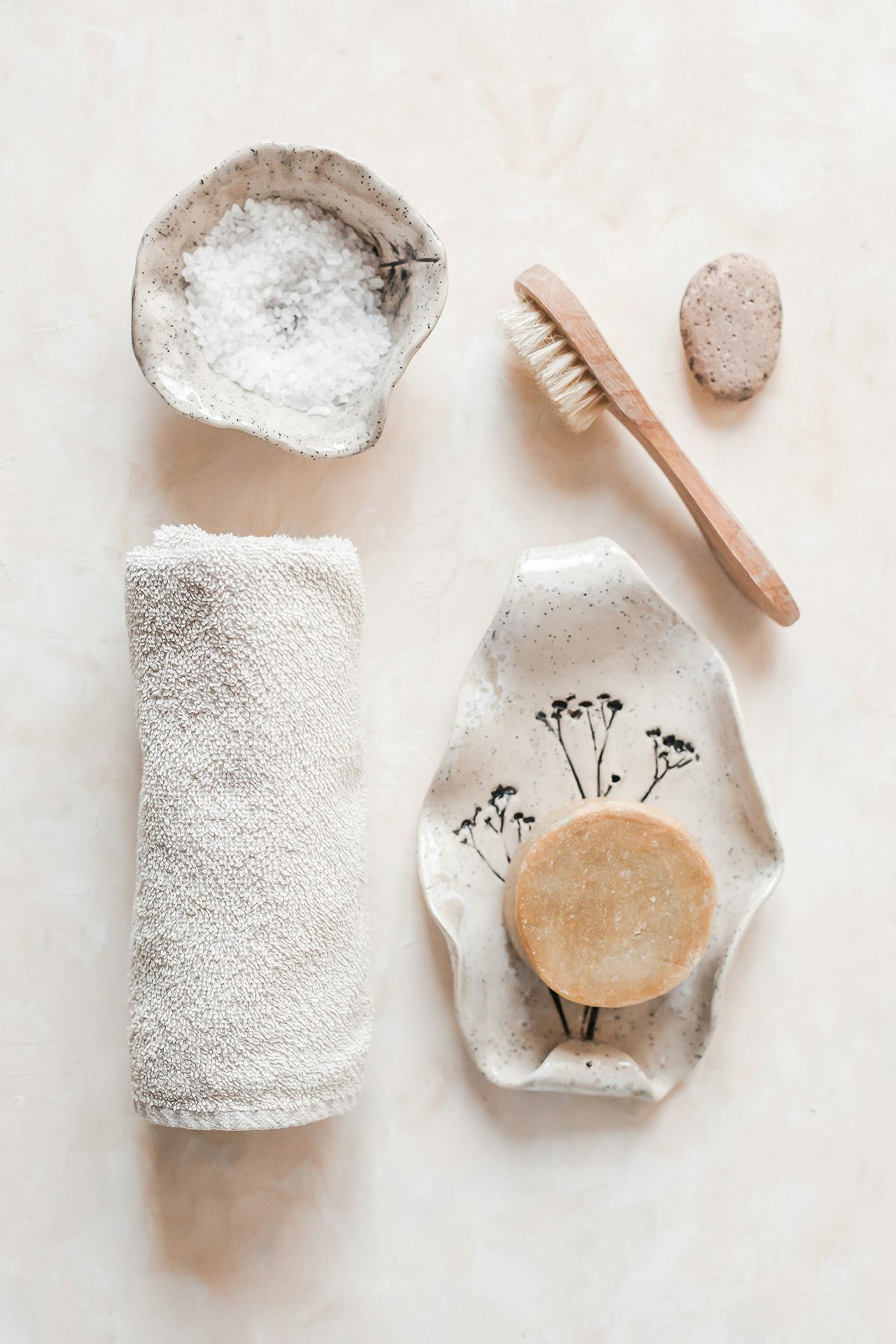
I thought I needed liquid soap, so I made my own. Then I thought that it was too much work and too pointless. In the end, the answer to the dilemma was that I just needed to find the right bar of soap for me and my skin. Now that I have found it, I love it so much that I would never ever exchange it again for liquid soap of any kind.
- skincare*:
Lush is one of the companies that sells a huge range of skincare products without packaging. Solid items are not packaged at all, and non-solid stuff is sold in black pots, which can be returned in exchange for a facial mask, and Lush will recycle them into new pots. It aligns with the cradle-to-cradle principle, which involves recycling and repurposing materials in a closed loop where nothing is down-cycled. (Speaking of skincare, I don't know if it is still necessary to mention that products with plastic beads are a pollution disaster. There are products on the market with dried leaves or grains that do the same job.)
When buying a bottle of shampoo or conditioner, you mostly pay for plastic and water. Solid shampoo and conditioner don't only come in paper but you also only pay for the product that you need to clean and nurture your hair.
Toothbrushes need to be replaced often, but instead of throwing away an entire plastic toothbrush, you can now get a bamboo version where you only replace the head. How genius is that?
- toothpaste:
There are lots of alternatives to plastic toothpaste tubes now. For example, toothpaste in jars* or toothpaste pills. They actually work!
Here are new solid deodorants available in paper tubes. Each brand uses different ingredients. It's worth trying which one works best with one's body.
Similar to single-use items, it's a pity to throw away cotton pads after just one use. The reusable ones can be put in the wash. If you use a lot of black make-up, go for the black pads because you won't see the stains. I must say, I don't have any pads. I don't use much make-up and so I just clean my face with my hands.
If we ignore here that they are said to be bad for your ears anyway and that they might be completely unnecessary (because that is a whole other discussion), then the ones that are made of cotton and paper are definitely a much better option than the standard plastic versions.
These instead of the plastic disposable ones is also an easy one, but one which admittedly I haven't changed yet. I still have some Venus exchangeable heads to go through first.
What a life changer! A cup is much healthier because no cotton pieces will stay inside your body, it only needs attention twice a day, and you only need to buy it once (or maybe every 5 years a new one?) so it's a huge money saver. Plus, it creates a healthy understanding of your cycle and your body. And if there is a month where you are not in a place with a sink and running water, then you can always go back to the good old throw-away tampons. But at least, you cut down the waste during all the other months of your life - to be exact you did not use 10.000 tampons.
This underwear is another life changer! If you prefer extra protection or don't like cups and prefer menstrual pads, then these reusable options could be a good alternative. You can rinse them after use and then just put them in the wash - again 14.000 tossable pads per person saved!
Fleece and nylon are made of plastic and little particles will come off every time we wash them. Those micro-plastic particles go into the water and are eaten by animals, which in turn are eaten by us. These bags keep most of the plastic out of the water.
Children
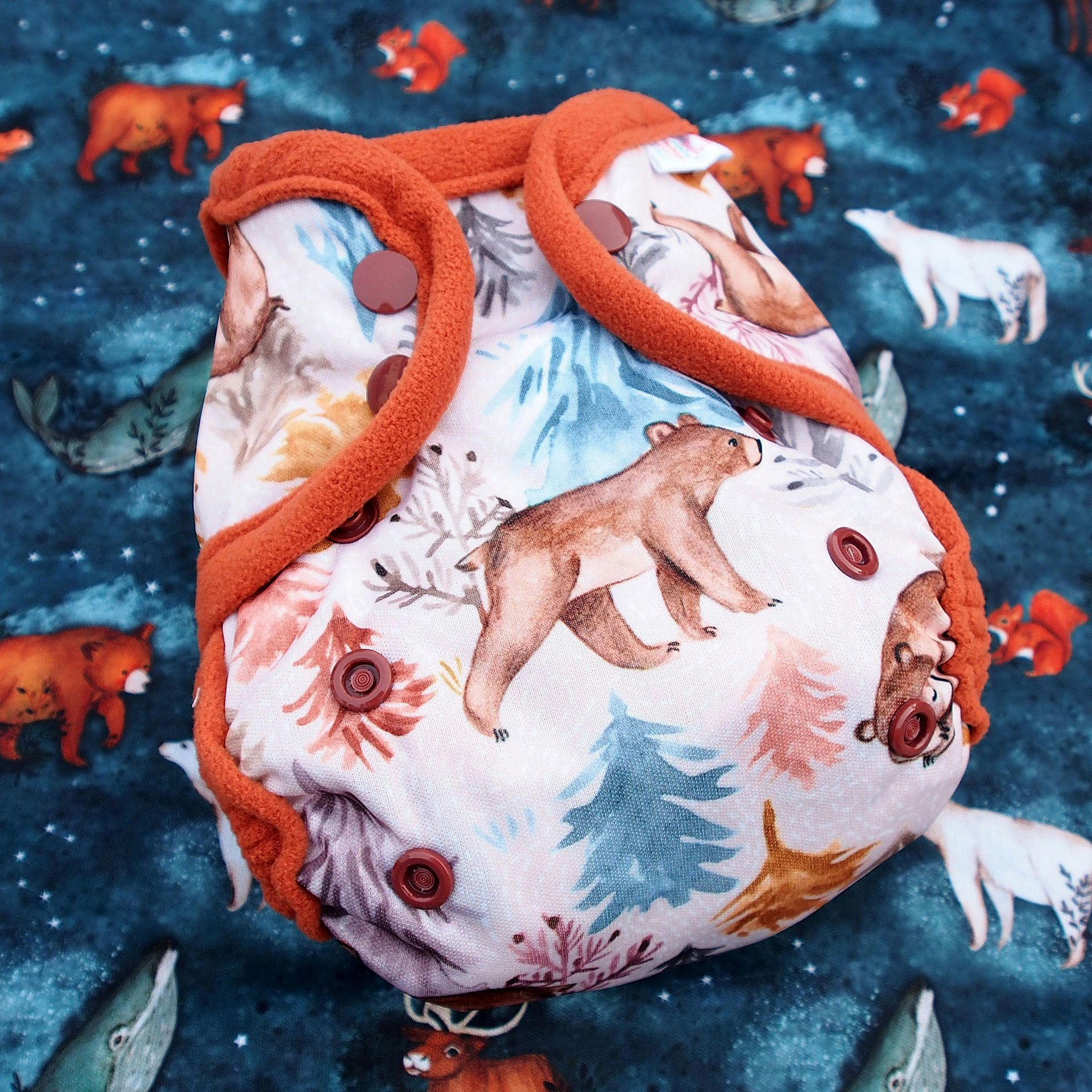
These have become pretty advanced and easy to use. Inside, there is a very thin layer that holds all the solid waste, which you can dispose of. The rest you simply wash it. Apart from the fact that your child is not exposed to plastic 24/7, you save around 10,000 diapers per child from having to be disposed of. If you have more than one child you save money, and if you only have one child, you can just pass them on to your friends who have a newborn. (There will be a whole article on reusable diapers soon.)
The food squeezers that you buy in the supermarket, and you throw away, are an unbelievable source of trash. They are incredibly expensive and it's a lot of plastic for just a small amount of food. But maybe these washable squeezers could be an alternative.
In a nutshell
Less is more!
First of all, don't throw away your disposables all at once to replace them with reusables. Use them until they are at the end of their life span or repurpose them, and only then get better options. And second, buy less of everything. Eco-friendly alternatives are not the solution if those are also bought in masses and replaced with the seasons and trends. Get one item that will make you happy and that you will value and cherish.
The perks of less plastic
I actually believe that you get a better immune system and that you attract fewer mini-diseases. By buying things without packaging and by using fewer chemicals to clean your house, you will be in contact with more dirt and bacteria, and therefore (I believe) your immune system will be better trained. You will also eat better food because the cheap and processed food is often packaged in a lot of plastic, and you just won't be able to purchase that stuff anymore if you want to cut down your plastic waste production. You will also have fewer plastic phthalates in your body, which must be a health improvement too.
You may be an outsider at first and people might think you are a bit strange with your reusable stuff. But you will see that people will become interested and they will want to know more about it. The more we spread the message, the more awareness we create, and the more common reusable items it will become. So next time, someone wants to offer you a beverage in a plastic cup, or a store wants to wrap your purchase in seven plastic bags, or an item has excessive packaging, or you get promotional plastic items with your purchase: say something. Simply say in a kind way that you don't need/want it because you want to waste less plastic.
Reusable items may seem expensive, and indeed they are pricier upfront. But it is in most cases a one-time investment. Non-disposable items are made of better and therefore more expensive materials. They are also made in smaller quantities. But they won't break and you will only need to buy them once in a very, very long time (which also saves you a lot of time because you don't need to run to the store so often). Non-disposable items are a bad business model because you won't have returning customers. But perhaps eliminating plastic will make space to develop business models that are innovative and sustainable and not just incredibly dumb.
(written February 2019 | updated March 2024)
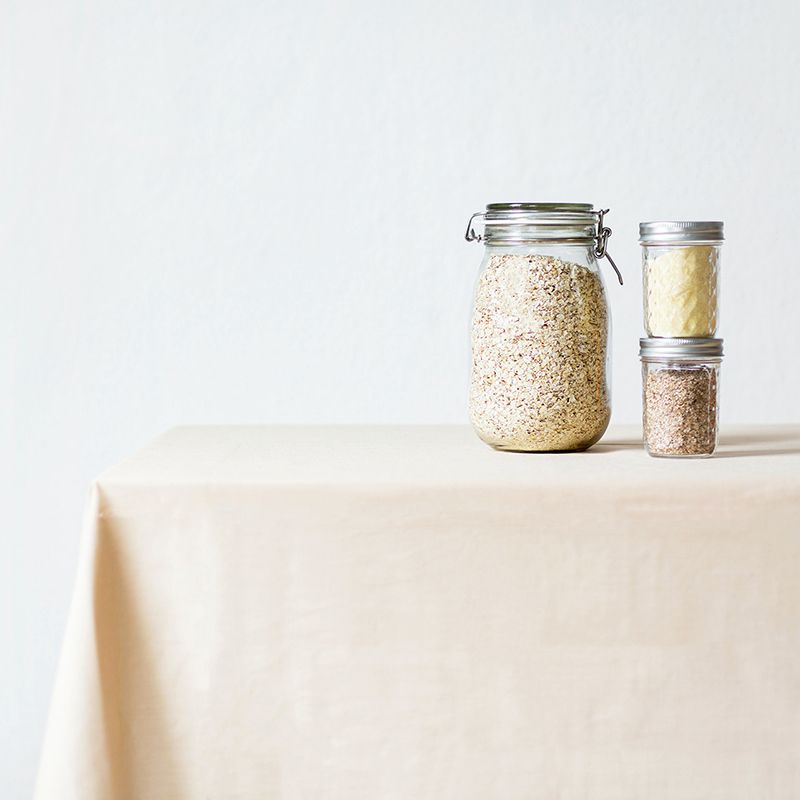
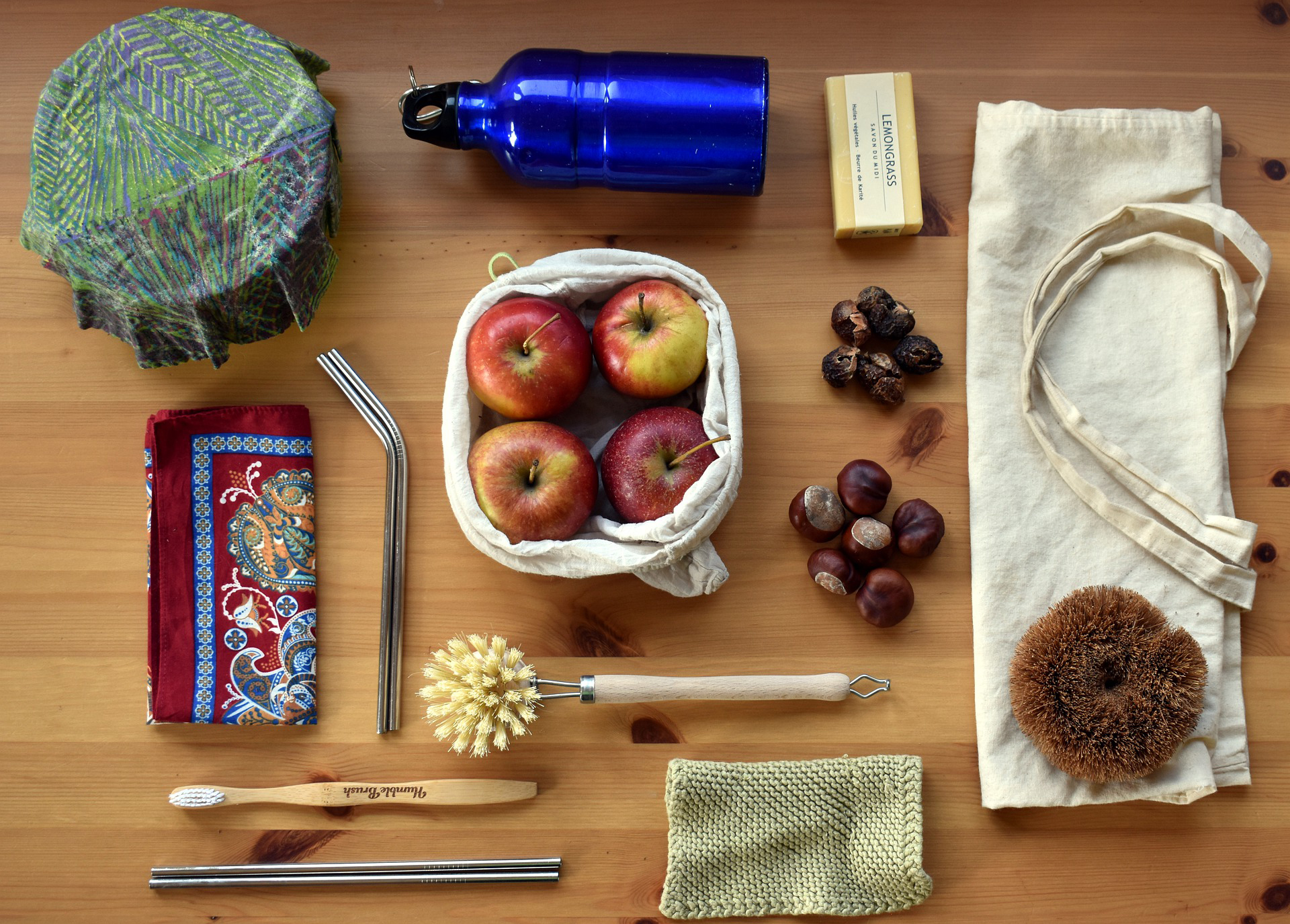 >
>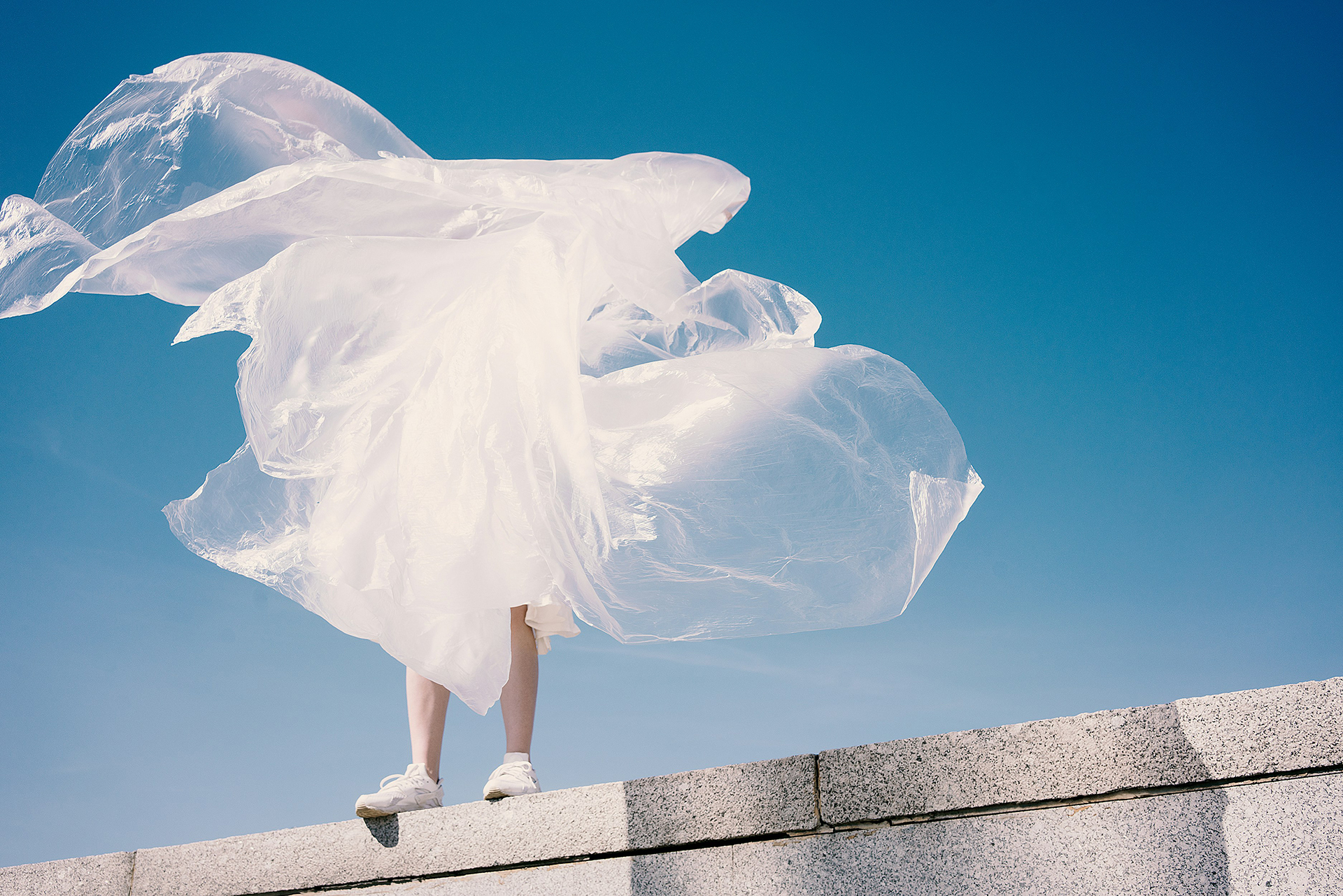 >
>